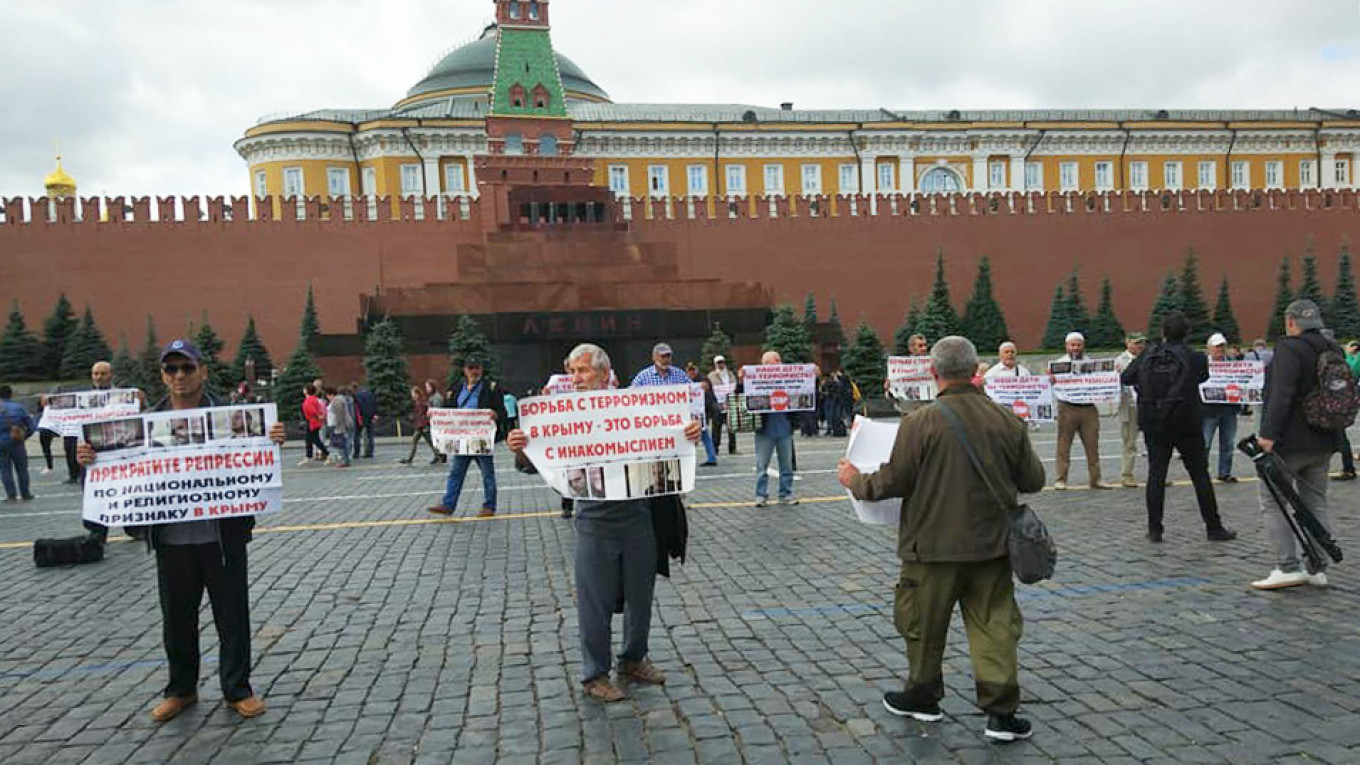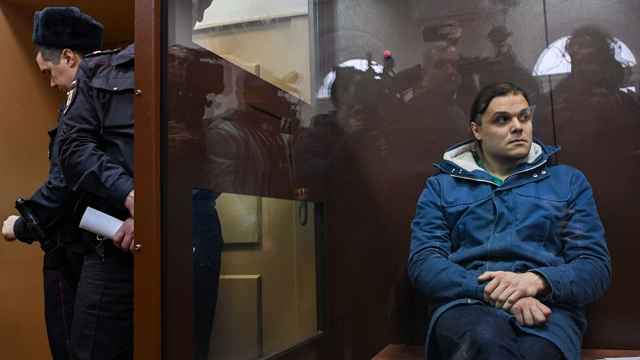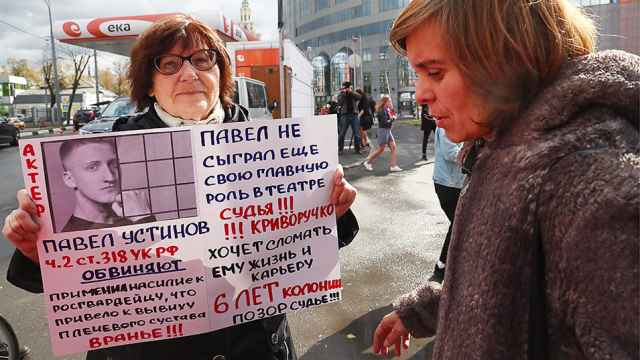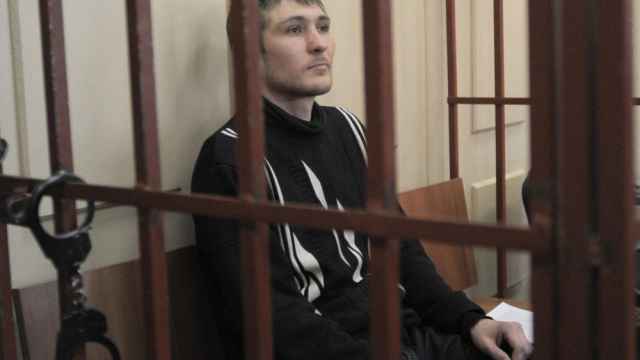Russian police detained seven Crimean Tatars on Moscow's Red Square on Wednesday after dispersing a demonstration that had aimed to draw attention to alleged rights abuses on the Black Sea peninsula which Russia annexed from Ukraine five years ago.
The Tatars, a mainly Muslim community that makes up about 15% of Crimea's population, have largely opposed Russian rule and say the 2014 annexation was illegal, a view supported by the West as well as Ukraine.
Moscow suspended the Crimean Tatars' semi-official Mejlis legislature after taking control and later jailed some of the community's leaders on separatism-related charges.
It has also detained Crimean Tatars it believes are extremists and members of banned Islamic group Hizb ut-Tahrir.
Russia says it is acting purely to prevent acts of terrorism, but some Crimean Tatars say the authorities are using religious extremism as a trumped-up pretext to lock up people they deem to be ideological opponents.
At least 20 Crimean Tatar men, some of them wearing Islamic skull-caps and long beards, stood silently on Wednesday morning in a long line stretching across Red Square holding placards.
"Our children are not terrorists. Stop the repression of Crimean Tatars," read one poster.
Another called on Russian authorities to stop what it called "repression based on national and religious grounds in Crimea".
Russian police officers moved in quickly, asking the protesters to roll up their placards and show their identity documents.
Video footage of the incident from online news portal TV Rain showed seven of the protesters being driven away in two police cars.
Under Russian law it is illegal for a group of people to hold such a protest without first receiving permission from the authorities for its time and venue.
Moscow says its 2014 annexation of Crimea was legal and in line with the wishes of the overwhelming majority of the population there, who voted in what it calls a fair referendum to join Russia.
Western countries have imposed economic sanctions on Russia over its annexation of Crimea and also its support for pro-Russian separatists battling Kiev's forces in eastern Ukraine.
A Message from The Moscow Times:
Dear readers,
We are facing unprecedented challenges. Russia's Prosecutor General's Office has designated The Moscow Times as an "undesirable" organization, criminalizing our work and putting our staff at risk of prosecution. This follows our earlier unjust labeling as a "foreign agent."
These actions are direct attempts to silence independent journalism in Russia. The authorities claim our work "discredits the decisions of the Russian leadership." We see things differently: we strive to provide accurate, unbiased reporting on Russia.
We, the journalists of The Moscow Times, refuse to be silenced. But to continue our work, we need your help.
Your support, no matter how small, makes a world of difference. If you can, please support us monthly starting from just $2. It's quick to set up, and every contribution makes a significant impact.
By supporting The Moscow Times, you're defending open, independent journalism in the face of repression. Thank you for standing with us.
Remind me later.






